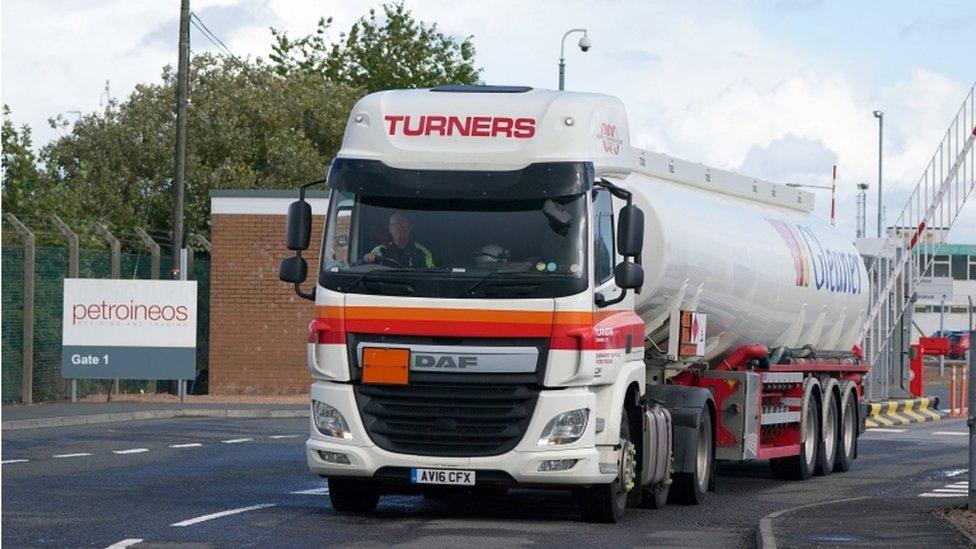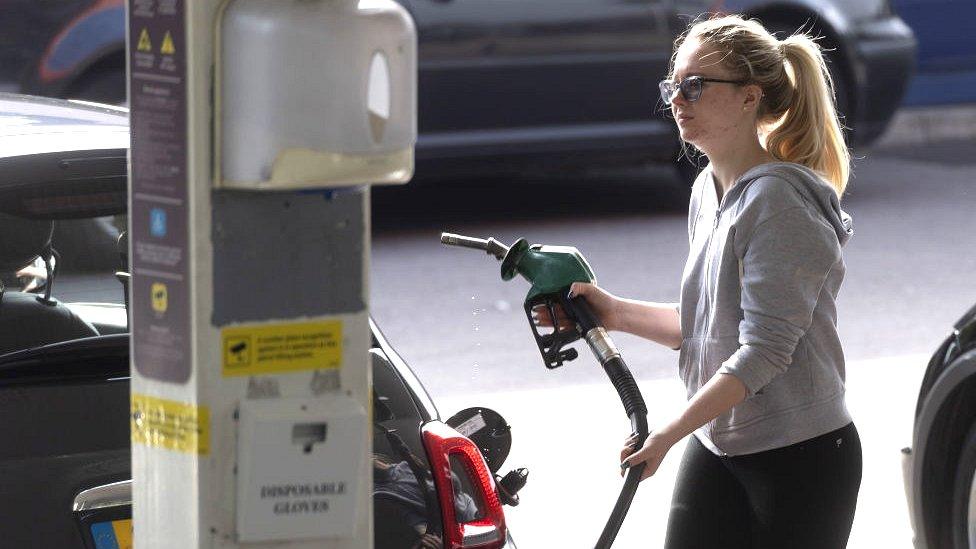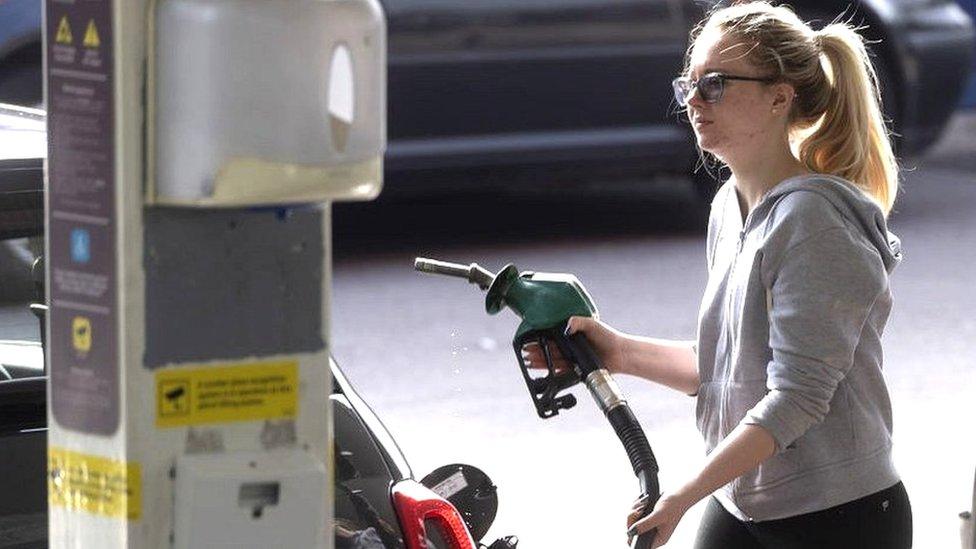Signs of normal fuel supply in Scotland 'by weekend'
- Published

Scotland's fuel supply has improved due to shorter supply chains, according to the Petrol Retailers Association
Fuel supply in Scotland could start to return to normal by the weekend providing there are no surges in panic buying, an industry chief has said.
Brian Madderson, chairman of the Petrol Retailers Association, told the BBC there should soon be a "rebalancing" of supply and demand.
The group has found the number of dry sites in Scotland had reduced to 15% while the UK figure was 27%.
It attributed this to shorter supply chains north of the border.
Mr Madderson told the BBC's Good Morning Scotland programme: "The tankers can actually get to more filling stations during their shifts due to the shorter distances than England and Wales.
"You're talking 30-40 miles maximum in the central belt. That's been a key point of your resilience.
"So we would expect Scotland will continue to improve and hopefully towards this weekend, provided we don't have any more massive surges in buying, we might start to see some rebalancing of supply versus demand."
The UK government has started deploying its reserve tanker fleet, driven by civilians, to boost fuel deliveries.
Business Secretary Kwasi Kwarteng also said soldiers would be delivering fuel this week, after days of queues - most noticeably in England and Wales.
Mr Madderson said the army would "possibly not" be used in Scotland as there were independent stations south of the border which had been experiencing shortages for up to five days because motorway filling stations had been given priority.
While in England the proportion of dry sites was 27% on average, the situation was patchy with some areas seeing greater problems, he added.
BBC Scotland reporter Sarah Toom visited 15 filling stations across Glasgow on Wednesday morning - four were completely closed due to no fuel, however, she saw no sign of panic-buying or queuing at others despite being out during morning rush-hour.

There are signs that the weekend's panic buying has ended, and people are returning to their normal fuel-buying habits
The fuel crisis has been exacerbated by a number of issues including a shortage of HGV drivers.
Temporary three-month visas have been introduced in an attempt to bring 5,000 fuel tanker drivers into the UK in the run up until Christmas.
The Scottish government has called for urgent action on immigration rules, arguing that the system does not meet the needs of Scotland.
Scottish External Affairs Secretary Angus Robertson wants Westminster to immediately introduce a 24-month temporary workers visa.
However, Transport Secretary Grant Shapps said long term changes prevent sectors from standing "on their own two feet".
'Huge bureaucratic obstacles'
Asked whether the UK government had done enough to address the crisis, Mr Madderson said he believed it had and that "small levers" were being pulled to tackle the "huge bureaucratic obstacles" from the Driver and Vehicle Licensing Agency (DVLA).
He said: "The DVLA have had a pretty difficult summer with strikes and people working from home - and they've got up to 40,000 unprocessed driver vehicle applications from HGV drivers sitting on their desks.
"One of the distribution managers for a large tanker fleet in Scotland told me he's got drivers sitting at home who've recovered from illness waiting for their medical permits to be restored."
He added the government would need to "think very carefully" about the 36 million vehicles on the road in the UK which rely on petrol and diesel, despite signs of people moving towards electric vehicles.
Fuel suppliers and retailers, including Shell UK, BP and Esso, said in a statement issued by the Department for Business, Energy and Industrial Strategy: "We remain confident that the situation will stabilise further in the coming days and encourage everyone to fill up as they normally would to help forecourts return to normal."
The industry statement also said there had "always been plenty of fuel at our refineries and terminals" and welcomed the deployment of the reserve tanker fleet.
- Published30 September 2021
